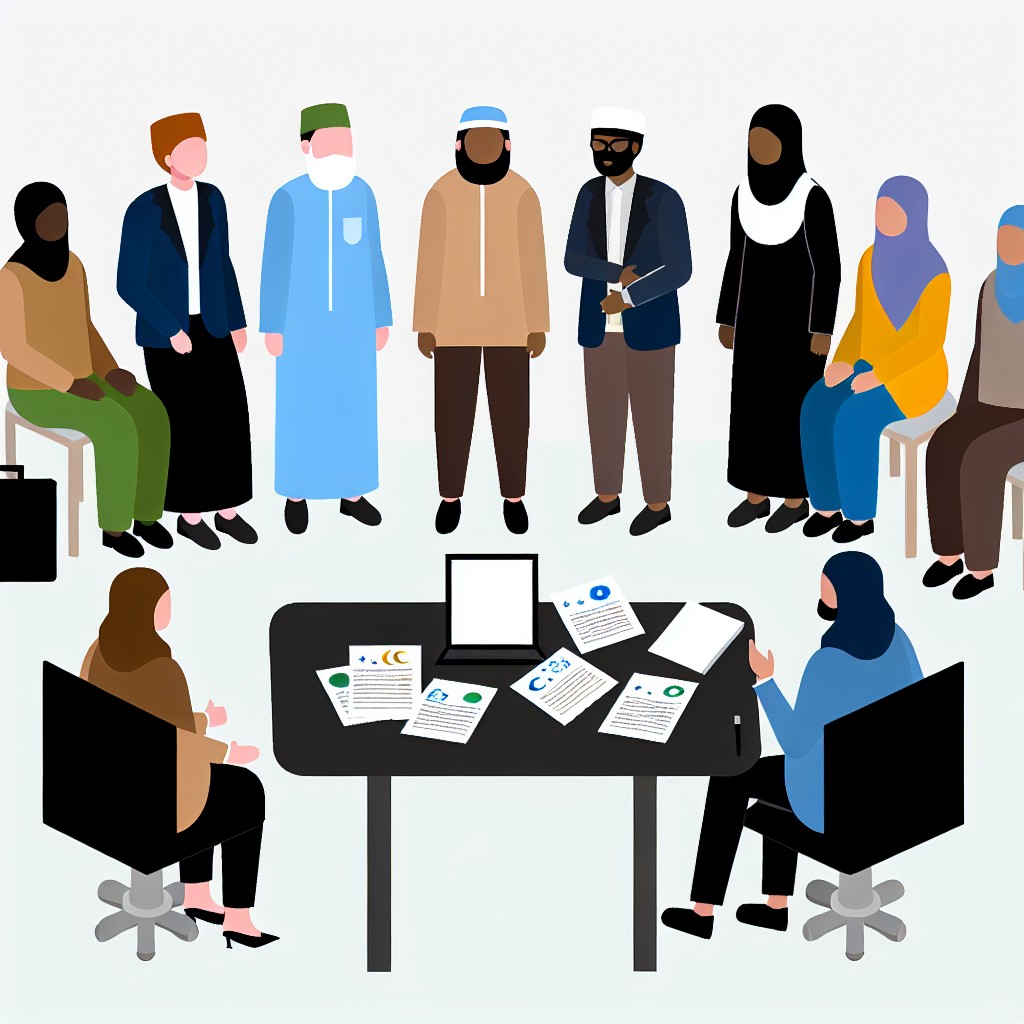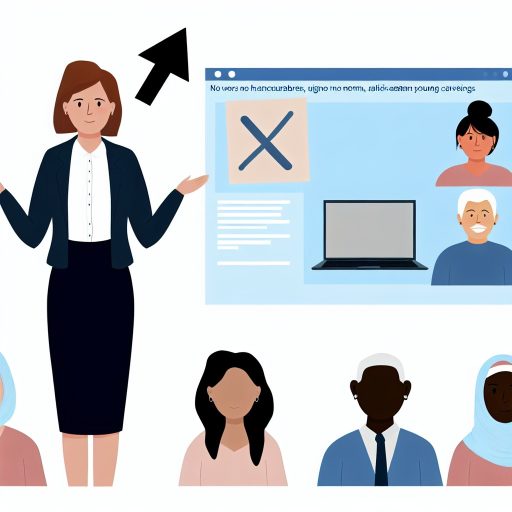Introduction:
A community health worker (CHW) is a frontline public health worker.
They are a trusted member of the community they serve.
CHWs typically have a close understanding of their community.
They play a crucial role in bridging gaps between underserved populations and healthcare providers.
Their work improves access to healthcare services.
Legal issues are paramount in CHW practice.
These issues set the framework for their roles, responsibilities, and limitations.
Understanding the legal landscape ensures CHWs can effectively carry out their duties.
They also help CHWs adhere to regulations and protect the rights of community members.
Key Legal Issues Affecting Community Health Workers
This blog post explores key legal issues impacting CHW practice.
Topics include scope of practice, confidentiality, liability, and ethical considerations.
By examining these topics, we highlight how legal frameworks shape CHWs’ work.
Legal frameworks also enhance the overall effectiveness of community health programs.
Legal requirements for practicing as a community health worker
- Certification and training requirements
- Scope of practice guidelines
- Importance of adhering to state and federal regulations
Certification and training requirements
As a community health worker, it is essential to undergo certification and training programs.
These programs help in developing the necessary skills and knowledge required to effectively serve the community.
Certification is often mandated by state regulations to ensure that CHWs meet the standards set for the profession.
Training programs cover various topics such as health education, communication skills, cultural competency, and advocacy.
Scope of practice guidelines
Community health workers must be aware of their scope of practice to avoid overstepping boundaries.
Each state has its own set of guidelines that outline the responsibilities and limitations of CHWs.
Adhering to these guidelines is crucial to maintaining professionalism and preventing legal disputes.
Transform Your Career Today
Unlock a personalized career strategy that drives real results. Get tailored advice and a roadmap designed just for you.
Start NowCHWs should always work within their scope of practice to provide safe and effective care to their clients.
Significance of complying with state and federal regulations
Adherence to state and federal regulations is paramount for community health workers.
Failure to comply with these regulations can result in legal consequences, including fines and loss of certification.
By following the established laws and regulations, CHWs can protect both themselves and their clients.
It is crucial to stay informed about any changes or updates to regulations to ensure compliance and promote ethical practice.
Essential practices for maintaining legal compliance
Understanding and following legal requirements is crucial for community health workers.
Certification, training, adherence to scope of practice guidelines, and compliance with state and federal regulations are essential.
By upholding these standards, CHWs can provide quality care while safeguarding their practice from legal challenges.
Confidentiality and privacy laws
- Importance of maintaining client confidentiality
- HIPAA regulations and implications for CHWs
- Strategies for ensuring data protection
Importance of maintaining client confidentiality
Client confidentiality is crucial in community health work.
Maintaining trust with clients requires protecting their sensitive information.
HIPAA regulations and implications for CHWs
HIPAA is a law that protects the privacy and security of health information.
Community health workers must understand and comply with these regulations.
Strategies for ensuring data protection
- Limit access to client information to authorized personnel only.
- Use secure electronic systems to store and transmit data.
- Obtain written consent from clients before sharing their information.
- Regularly update and train staff on data protection protocols.
- Implement encryption and password protection for all client data.
Maintaining confidentiality and privacy in community health work builds trust with clients.
Community health workers must prioritize data protection to ensure client information safety.
Discover More: Housing Coordinator Work-Life Balance Tips
Liability Issues in Community Health Worker Practice
- Potential legal risks in CHW practice
- Understanding liability insurance options
- Steps to mitigate legal liability in the field
Community Health Workers (CHWs) may face legal risks in their practice.
Such risks include providing incorrect information or advice to clients.
They can also face issues from breaches of confidentiality.
Failure to report abuse or neglect is another potential legal risk.
CHWs can protect themselves from potential legal liabilities by obtaining liability insurance.
Transform Your Career Today
Unlock a personalized career strategy that drives real results. Get tailored advice and a roadmap designed just for you.
Start NowThis insurance coverage can help cover legal expenses in case of lawsuits or claims filed against CHWs.
CHWs can take various steps to mitigate legal liability in their practice.
- Stay up-to-date with relevant laws and regulations governing CHW practice.
- Document all interactions with clients accurately and thoroughly.
- Adhere to ethical standards and guidelines in their practice.
- Obtain informed consent from clients before providing any services or interventions.
- Consult with legal professionals or supervisors when unsure about legal issues or risks.
- Participate in continuing education and training programs to enhance their knowledge and skills.
You Might Also Like: The Future of Gerontology: Trends and Innovations
Supervision and Oversight of CHWs
Community Health Workers (CHWs) play a vital role in promoting health and wellness in communities.
They engage with individuals and families regularly.
Organizations must provide proper supervision and oversight.
This ensures legal compliance and quality care for all.
Supervisors guide, support, and monitor the work of CHWs consistently.
They must address any legal issues that may arise during their work.
The following key factors are important to consider.
Role of Supervisors in Ensuring Legal Compliance
- Supervisors serve as a link between CHWs and the organization.
- They provide guidance on legal requirements and standards.
- Supervisors ensure CHWs adhere to regulations about patient confidentiality.
- They verify compliance with informed consent and scope of practice rules.
- Supervisors monitor CHW activities to prevent legal violations or malpractice.
Importance of Clear Communication and Documentation
- Effective communication between supervisors and CHWs is essential.
- This helps address legal issues promptly and effectively.
- Clear documentation of CHW activities and interventions is important.
- Proper records of client interactions support legal compliance and accountability.
- Regular reporting and feedback enable timely identification of legal concerns.
Strategies for Addressing Legal Issues within the Organization
- Provide ongoing training to CHWs on legal requirements and best practices.
- Establish clear policies and procedures outlining expectations and responsibilities.
- Define consequences for non-compliance clearly in organizational policies.
- Implement regular audits and quality assurance measures to monitor CHW performance.
- Collaborate with legal counsel to address complex legal issues effectively.
- Ensure compliance with state and federal regulations continually.
Effective supervision and oversight maintain legal compliance for CHWs.
These practices uphold the quality of care provided to communities.
By emphasizing communication and documentation, organizations reduce legal risks.
Proactive strategies help optimize the impact of CHWs.
Ultimately, these efforts improve community health outcomes significantly.
Gain More Insights: Volunteer Coordinator: Building a Supportive Culture

When it comes to cultural competence and diversity issues in community health worker practice, there are several legal considerations that must be taken into account.
Serving diverse populations requires an understanding of the unique needs and challenges that may arise.
Legal Considerations in Serving Diverse Populations
- Community health workers must be aware of any legal requirements or restrictions that pertain to specific cultural or ethnic groups.
- Understanding the legal framework that governs the delivery of healthcare services to diverse populations is essential for providing effective care.
- Compliance with laws and regulations that protect the rights of minority populations is necessary to ensure equitable access to healthcare.
- Community health workers must also consider any legal implications related to the collection and sharing of sensitive information about diverse populations.
Addressing Language Barriers and Cultural Differences
- Language barriers can pose a significant challenge in providing healthcare services to diverse populations.
- Community health workers must find ways to effectively communicate with individuals who speak different languages or dialects.
- Legal considerations related to language access and interpretation services must be taken into account to ensure compliance with relevant laws.
- Cultural competency training can help community health workers navigate cultural differences and provide culturally sensitive care.
Providing Effective and Equitable Care While Respecting Legal Boundaries
- Community health workers must strive to provide effective care that meets the needs of diverse populations while respecting legal boundaries.
- Awareness of laws and regulations that govern the provision of healthcare services is crucial for delivering equitable care to all individuals.
- Respecting the legal rights and privacy of diverse populations is essential for maintaining trust and building effective relationships.
- Community health workers should continually educate themselves on legal issues affecting the populations they serve to ensure ethical and lawful practices.
Cultural competence and diversity issues play a significant role in community health worker practice.
By understanding and addressing the legal considerations related to serving diverse populations, community health workers can provide effective and equitable care while respecting legal boundaries.
Transform Your Career Today
Unlock a personalized career strategy that drives real results. Get tailored advice and a roadmap designed just for you.
Start NowLearn More: How to Use Social Media for Volunteer Recruitment
Advocacy and policy issues
Community Health Workers play a crucial role in advocating for policy change.
They are at the forefront of addressing health disparities and promoting health equity.
Advocacy work involves understanding the legal framework within which policies are developed.
CHWs must have a comprehensive understanding of health laws and regulations.
They must also be aware of how policies impact the communities they serve.
One key strategy is to build strong partnerships with legal experts and organizations.
This helps CHWs navigate complex legal challenges and ensure compliance.
CHWs can collaborate with policy makers to influence health policy decisions.
They can also engage in grassroots advocacy campaigns to raise awareness and garner support.
Understanding the legal context of advocacy work
Advocacy work involves advocating for changes in policies and practices.
It also includes educating communities about their rights and responsibilities.
CHWs must understand the legal implications of their advocacy efforts.
They should be familiar with laws related to healthcare, social services, and human rights.
Understanding legal terminology and processes is essential for effective advocacy.
This knowledge helps CHWs communicate effectively with legal professionals and stakeholders.
It also enables them to identify potential legal barriers to their advocacy work.
By understanding the legal context, CHWs can advocate more strategically and effectively.
Strategies for navigating legal challenges in community health advocacy
CHWs should seek legal guidance when unsure about the legality of their actions.
They can attend trainings on health law and advocacy to enhance their knowledge.
Transform Your Career Today
Unlock a personalized career strategy that drives real results. Get tailored advice and a roadmap designed just for you.
Start NowBuilding relationships with legal aid organizations can provide valuable support.
CHWs should document their advocacy efforts and outcomes to demonstrate impact.
They can use data and evidence to support their advocacy initiatives.
Engaging in coalition-building with other advocates can strengthen their advocacy efforts.
CHWs should stay informed about changes in legislation and policies that affect their work.
Collaboration with legal experts can help CHWs address legal challenges effectively.
By adopting a proactive and strategic approach, CHWs can overcome legal hurdles in advocacy.
Legal Considerations for Community Health Workers
Legal issues play a crucial role in the practice of Community Health Workers.
It is important for Community Health Workers to understand the laws involved in their work.
Such awareness ensures the safety and well-being of the communities they serve.
The following key legal points are essential for Community Health Workers.
- Confidentiality and privacy laws must be well understood.
- Community Health Workers need to follow legal boundaries when providing services.
- Awareness of legal issues helps prevent risks and protects both workers and clients.
Being legally informed supports professionalism and integrity in Community Health Workers’ roles.
It ensures that they deliver quality and ethical services to the community.
Community Health Workers should continuously update themselves on relevant laws and regulations.
By prioritizing legal knowledge, they increase their effectiveness and positive impact on public health.




